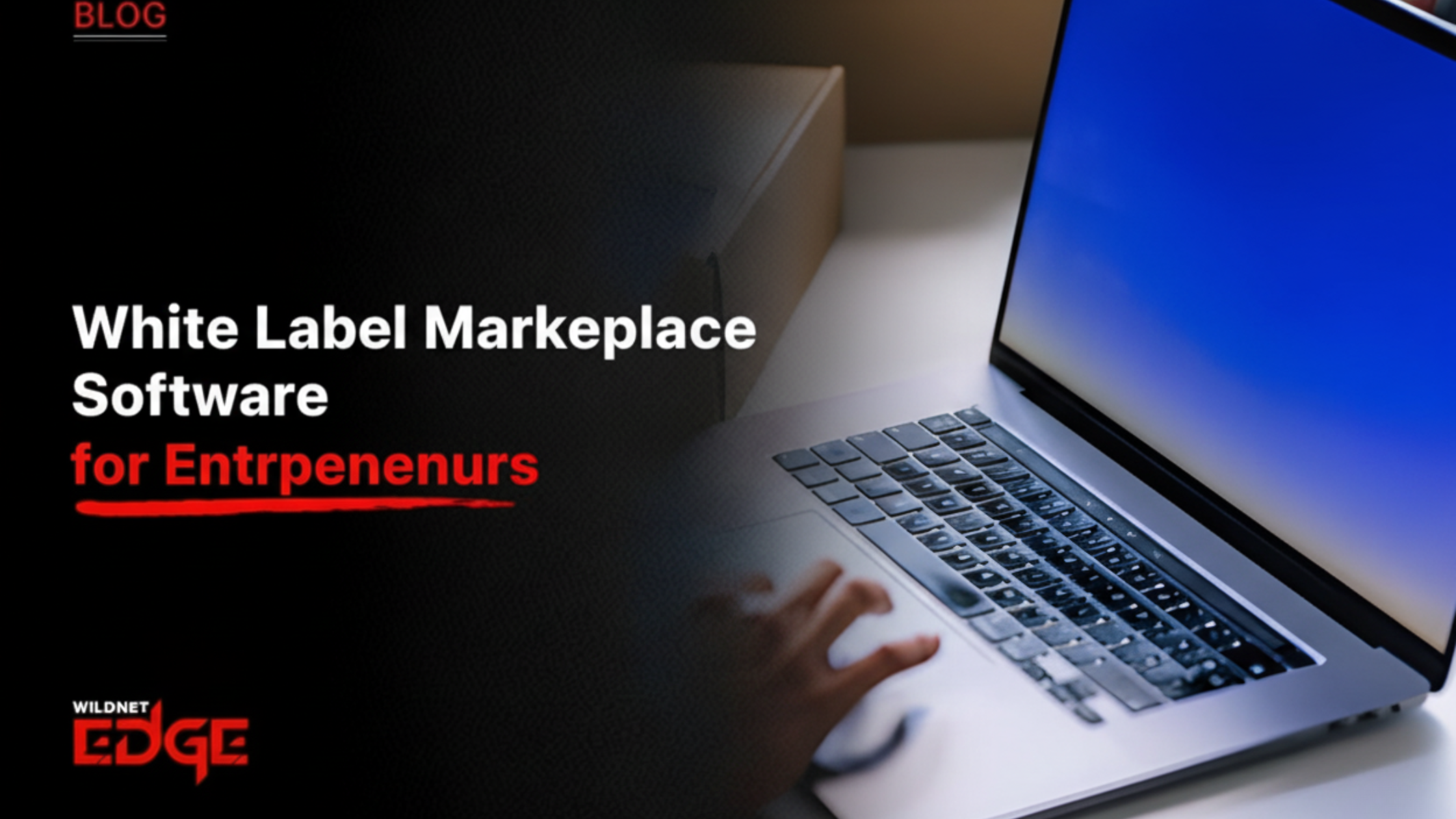Are you an entrepreneur struggling to launch your own marketplace? You’re not alone. Many aspiring business owners find the process daunting and costly. But what if I told you there’s a way to kickstart your dreams without the hassle? Enter white label marketplace software, a game-changer that allows you to create a fully operational marketplace quickly and efficiently. Let’s dive into how this innovative solution can set you on the path to success.
Resellable Platform
A resellable platform is a pre-built solution that entrepreneurs can customize and brand as their own. This model allows for a quicker entry into the marketplace by eliminating the need for extensive development and backend infrastructure.
Definition of a Resellable Platform
In simple terms, a resellable platform is like a ready-made toolkit for entrepreneurs. It comes with essential features and functionalities that can be tailored to fit individual business needs. This model is particularly advantageous for those looking to enter competitive markets without the extensive investment typically required for custom-built solutions.
Advantages of Using a Resellable Model
- Cost-Effective: By utilizing a resellable platform, you significantly reduce development costs. Instead of hiring a team of developers, you can leverage existing technology.
- Speed to Market: Launching your marketplace becomes much quicker. You can focus on branding and marketing rather than starting from scratch.
- Scalability: As your business grows, many resellable platforms offer scalability options. This means you can expand your offerings without overhauling your entire system.
Examples of Successful Businesses Leveraging This Approach
Several successful businesses have adopted the resellable platform model. For instance:
- Etsy: Initially began as a niche marketplace for handmade goods but has since grown into a massive platform by allowing artisans to resell their products.
- Airbnb: Utilized a white label approach to create a marketplace that connects hosts with travelers, allowing users to start their own rental businesses.
- Shopify: Provides a resellable eCommerce platform that enables entrepreneurs to create their own online stores quickly.
By taking advantage of a resellable platform, these businesses have streamlined their operations, allowing them to focus on growth and customer engagement.
Turnkey Marketplace App
A turnkey marketplace app is a comprehensive solution that provides everything you need to launch your marketplace out of the box. These apps are designed to be user-friendly and require minimal setup, making them ideal for entrepreneurs.
Key Components of a Turnkey Marketplace App
- User Interface: A clean and intuitive design helps in attracting and retaining users. A seamless experience encourages higher engagement.
- Payment Integration: Secure payment gateways are crucial. A turnkey app should offer multiple payment options to cater to diverse customer preferences.
- Inventory Management: Efficient inventory management tools help you keep track of products and services, ensuring that your marketplace runs smoothly.
How Turnkey Solutions Simplify the Setup Process
Turnkey solutions eliminate the complexities associated with launching a marketplace. With everything from backend infrastructure to front-end design pre-configured, entrepreneurs can:
- Focus on branding rather than technical details.
- Quickly onboard sellers and buyers.
- Use ready-made marketing strategies to attract users.
Comparison of Turnkey Apps vs. Custom Development
While custom development offers a tailored approach, it comes with higher costs and longer timelines. In contrast, turnkey apps provide:
- Lower Costs: No need for extensive development resources.
- Faster Launches: Get your marketplace up and running in a fraction of the time.
- Proven Solutions: Turnkey apps often come with tested features that have already been optimized for performance.
For entrepreneurs looking to minimize risk and maximize efficiency, a turnkey marketplace app is often the best choice.
Success Stories
Real-world examples of entrepreneurs who have succeeded with white label marketplaces can provide valuable insights and inspiration.
Case Studies of Successful White Label Marketplace Launches
- Printful: This print-on-demand service allows entrepreneurs to create custom products without handling inventory. Their white label solution has empowered thousands of small businesses to launch their own merchandise lines.
- Reverb: A niche marketplace for musicians, Reverb started as a white label solution and has become a go-to platform for buying and selling musical instruments. Their success lies in understanding their target audience and providing tailored solutions.
Lessons Learned from These Entrepreneurs
- Identify Your Niche: Successful entrepreneurs often focus on a specific market segment, allowing them to tailor their offerings effectively.
- Prioritize User Experience: A seamless and enjoyable user experience is critical for customer retention.
- Leverage Marketing Strategies: Utilize digital marketing techniques to reach your target audience, such as SEO, social media, and email marketing.
Impact on Their Business Growth
The impact of launching a white label marketplace can be profound. For instance, Printful has enabled countless entrepreneurs to create sustainable income streams, while Reverb has seen exponential growth by catering to a passionate community of musicians. These case studies illustrate the potential for substantial business growth when leveraging a white label marketplace.
Future Trends in Marketplace Software
The landscape of marketplace software is constantly evolving. Entrepreneurs should stay informed about emerging trends to remain competitive.
Increasing Importance of Mobile Optimization
With an increasing number of consumers shopping on mobile devices, ensuring your marketplace is mobile-friendly is no longer optional. A responsive design can significantly enhance user experience and boost sales.
The Role of AI and Automation in Marketplace Efficiency
Artificial intelligence is transforming how marketplaces operate. From personalized recommendations to automated customer service, integrating AI can streamline operations and enhance user satisfaction. Automation tools can help manage inventory, process orders, and analyze customer behavior, allowing entrepreneurs to focus on growth.
Predictions for the Future of White Label Marketplaces
As technology continues to advance, we can expect:
- More customization options for white label solutions.
- Increased integration of blockchain technology for secure transactions.
- A growing emphasis on sustainability, with marketplaces focusing on eco-friendly products and practices.
Entrepreneurs who remain agile and adaptive to these trends will be well-positioned for success in the ever-evolving marketplace landscape.
Conclusion
In summary, white label marketplace software offers a streamlined solution for entrepreneurs looking to launch their own platforms with ease. With the right tools and insights, you can tap into a lucrative market without starting from scratch. Trust WildnetEdge to provide you with the expertise and technology you need to succeed in this competitive landscape. Ready to elevate your entrepreneurial journey? Let’s get started!
FAQs
Q1: What is a white label marketplace?
A white label marketplace is a pre-built platform that allows entrepreneurs to brand and customize it as their own, enabling quick market entry.
Q2: How can a resellable platform benefit my business?
A resellable platform allows you to generate revenue by selling products or services without the need for extensive development, saving time and costs.
Q3: What features should I look for in a turnkey marketplace app?
Look for features like user-friendly design, payment integration, inventory management, and scalability options in a turnkey marketplace app.
Q4: Are there case studies of successful white label marketplaces?
Yes, many entrepreneurs have successfully launched white label marketplaces, leveraging their unique niches to achieve substantial growth.
Q5: What trends are shaping the future of marketplace software?
Key trends include mobile-first designs, AI-driven analytics, and increased focus on customer experience and personalization.

Nitin Agarwal is a veteran in custom software development. He is fascinated by how software can turn ideas into real-world solutions. With extensive experience designing scalable and efficient systems, he focuses on creating software that delivers tangible results. Nitin enjoys exploring emerging technologies, taking on challenging projects, and mentoring teams to bring ideas to life. He believes that good software is not just about code; it’s about understanding problems and creating value for users. For him, great software combines thoughtful design, clever engineering, and a clear understanding of the problems it’s meant to solve.
 sales@wildnetedge.com
sales@wildnetedge.com +1 (212) 901 8616
+1 (212) 901 8616 +1 (437) 225-7733
+1 (437) 225-7733















 ChatGPT Development & Enablement
ChatGPT Development & Enablement Hire AI & ChatGPT Experts
Hire AI & ChatGPT Experts ChatGPT Apps by Industry
ChatGPT Apps by Industry ChatGPT Blog
ChatGPT Blog ChatGPT Case study
ChatGPT Case study AI Development Services
AI Development Services Industry AI Solutions
Industry AI Solutions AI Consulting & Research
AI Consulting & Research Automation & Intelligence
Automation & Intelligence















